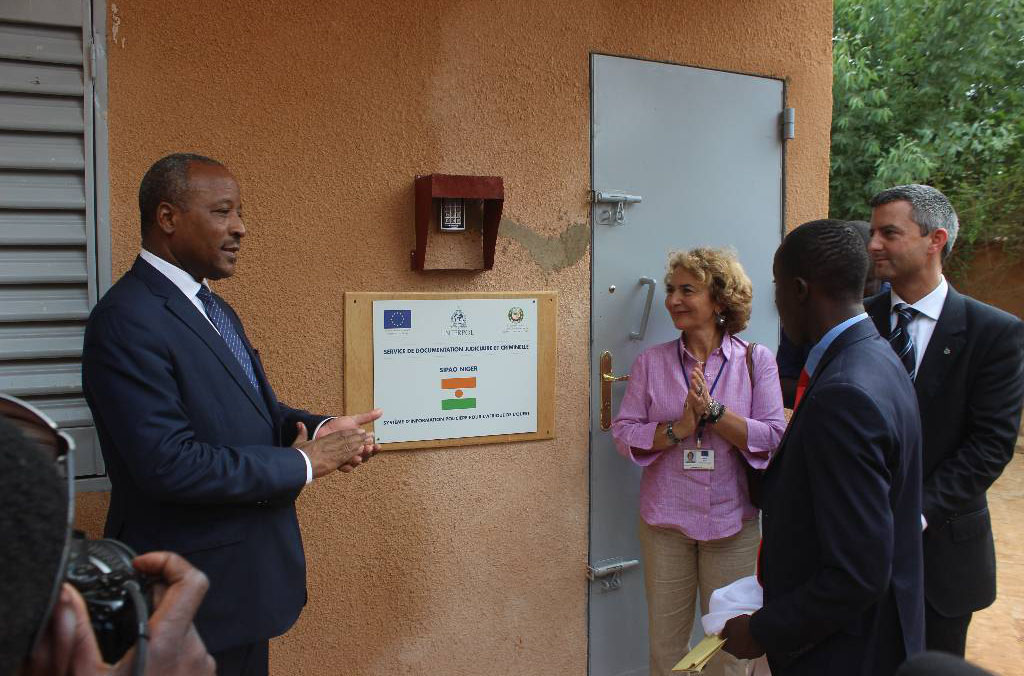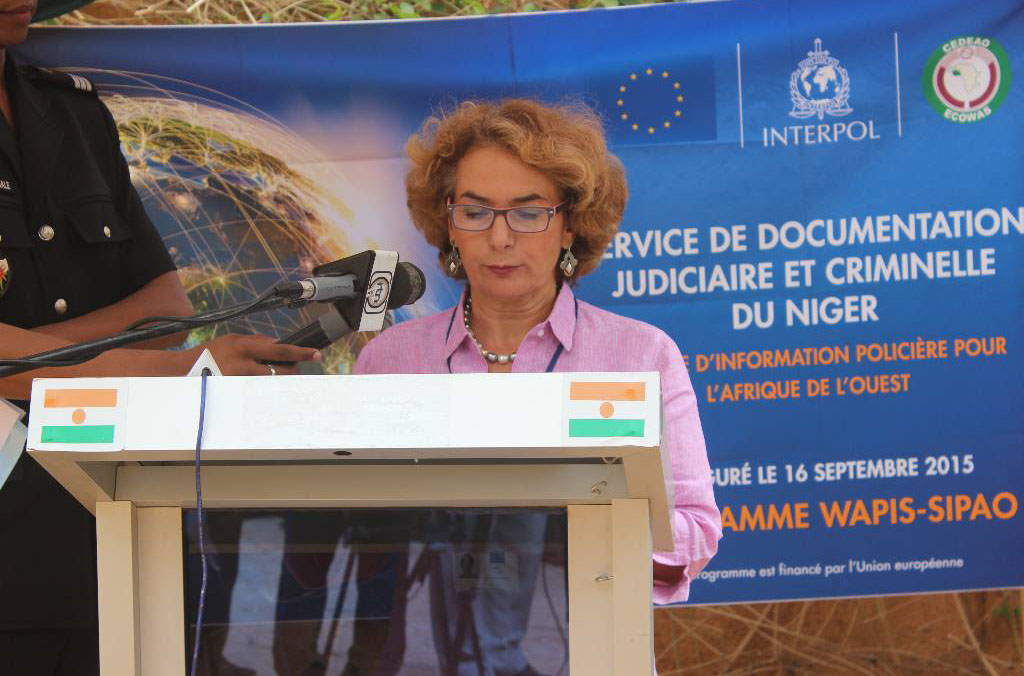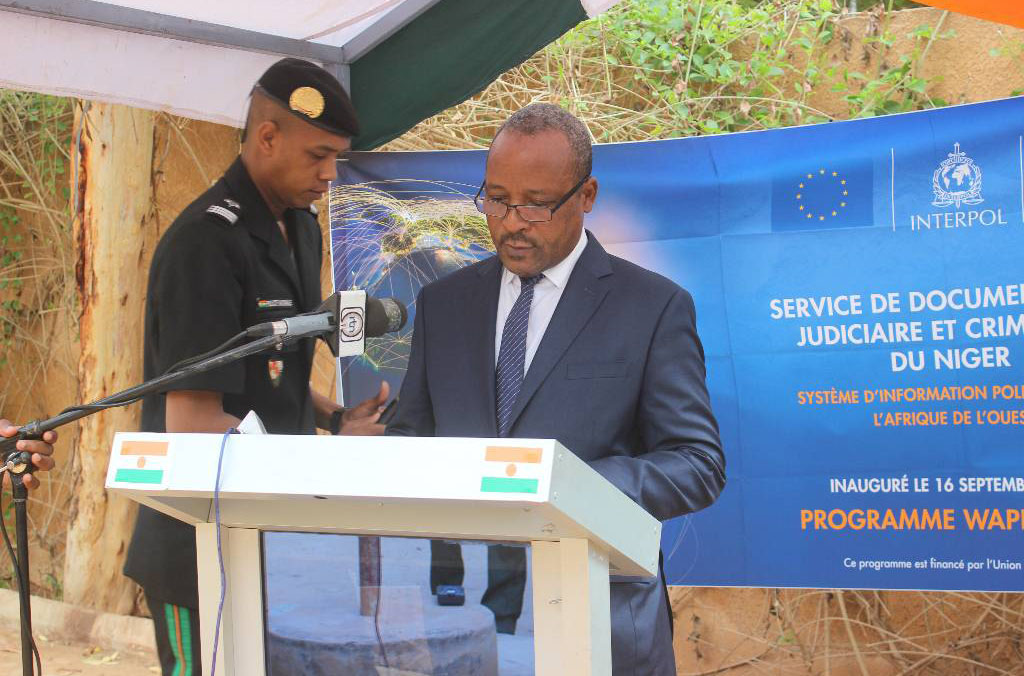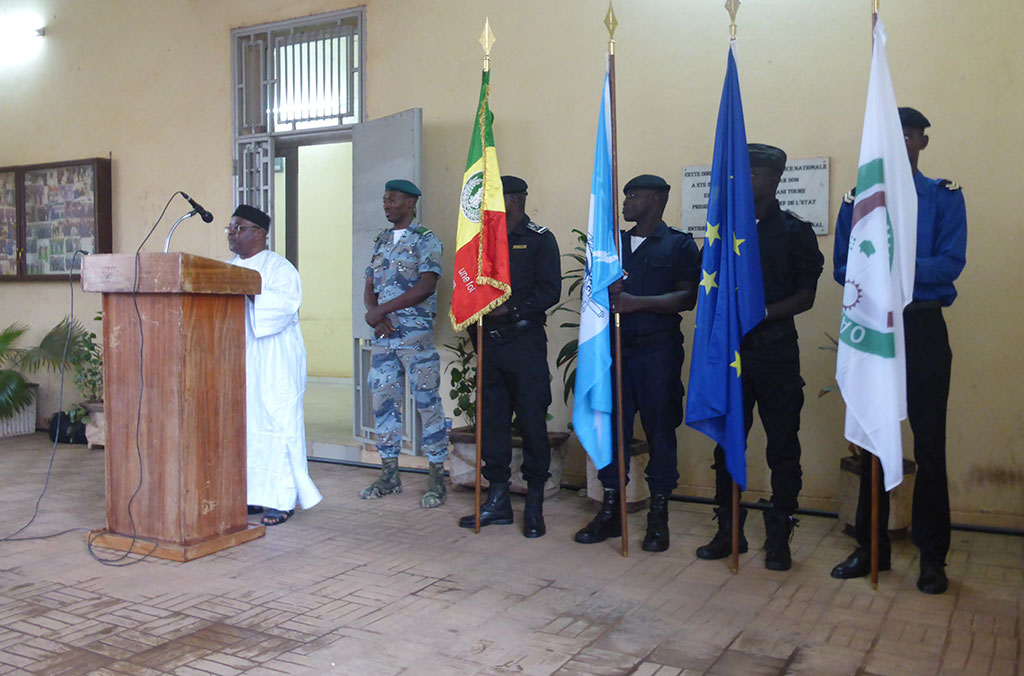BAMAKO, Mali - The first electronic police information system for West African countries, funded by the European Union (EU) and implemented by INTERPOL with the collaboration of the Economic Community of West African States (ECOWAS), has been launched in Mali as well as in Benin and Niger.
The West African Police Information System (WAPIS) facilitates the collection, centralization, management, sharing and analysis of police information emanating from all relevant national law enforcement agencies.
As in each of the participating countries, in Mali the system was installed within a national Data Collection and Registration Centre (DACORE). This was inaugurated in Bamako at the launch of the WAPIS system and attended by Mali’s Interior Minister, Général Sada Samaké, who emphasized its ‘internal security role’.
The initiative to create WAPIS stemmed in 2010 from a meeting of the West African Police Chiefs of Police, and their concern on West Africa becoming a crime hub for drug trafficking, human smuggling and terrorism.
In this respect, in Cotonou, Benin 's Minister of the Interior, Public Security and Religious Affairs, Placide Azande, underlined ‘the importance of sharing information via WAPIS against crime threats in West Africa’.
At national level, the WAPIS Programme enables participating countries to convert existing paper-based police data into a digital format so it can be inserted, together with new police data, into the national WAPIS system and easily shared among law enforcement agencies.
In Niamey, Niger 's Minister of the Interior, Public Security, Decentralization, Customary and religious Affairs, Hassoumi Massaoudou, described the WAPIS programme as ‘a good example of cooperation’ against global threats which require a regional response.
In the next phase of the programme, a regional electronic police information sharing platform will be developed under the aegis of ECOWAS to enable countries to share police data across West Africa.
“Police work is skills plus information. The daily creation of electronic police data and its central management will significantly increase the capacity of law enforcement agencies in West Africa to combat organized crime and terrorism,” said Oliver Bertrand, Head of the WAPIS Programme at INTERPOL.
Global information sharing through INTERPOL channels will also be reinforced through the connection of each DACORE to INTERPOL’s secure global police communications system, I-24/7.
With the WAPIS programme to be launched in Ghana on 29 September, the upcoming General Annual Assembly of the Western African Police Chiefs Committee (WAPCCO) is expected to endorse the full roll-out of the WAPIS Programme in all 15 ECOWAS Member States.







